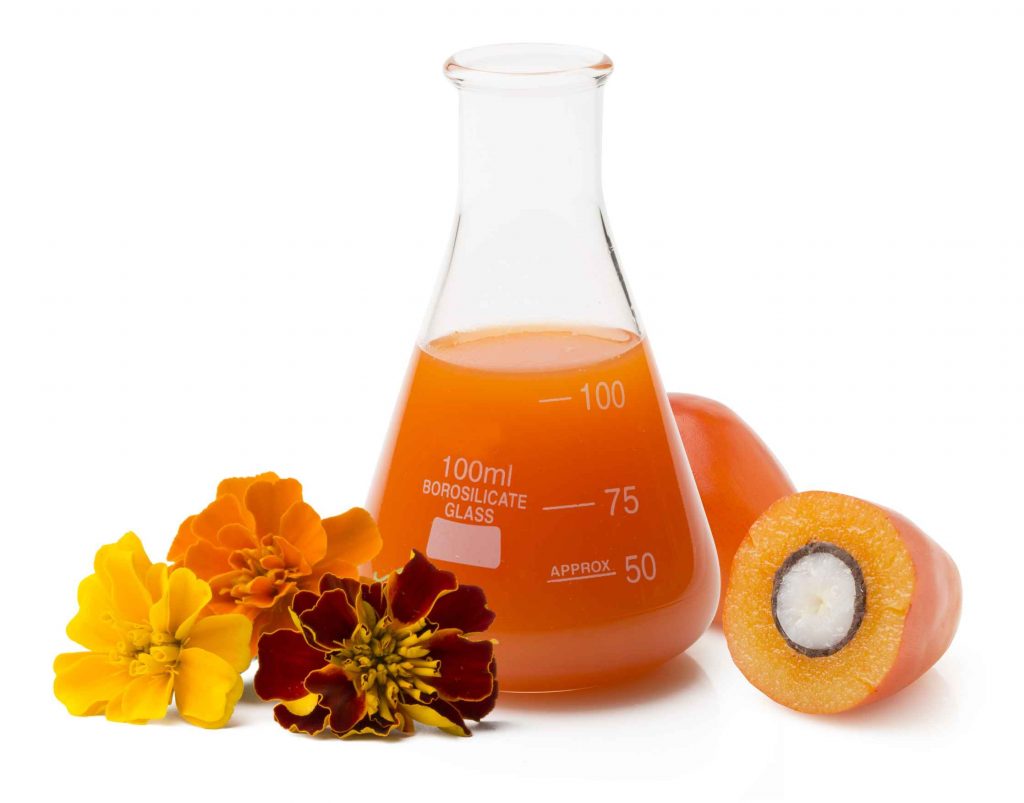
When you ask Kevin Gellenbeck, Ph.D., about carotenoids, plan to settle in for a master class. For over 30 years, the good doctor has been researching the wonders of carotenoids and the plants that make them. Along the way, he has shared his insights at international conferences, in prestigious scientific journals and with Amway distributors around the world.
Dr. Gellenbeck is also a senior member of the Innovation & Science team at the Nutrilite Health Institute (NHI). That’s a big deal. Why? When you see beta-carotene, lutein, zeaxanthin or other carotenoids on the label of a Nutrilite™ product, it’s a good bet it’s backed by the wisdom of the entire team, including Dr. Gellenbeck.
From healthy vision to immune health to cognitive function and beyond, Dr. Gellenbeck can expertly explain the wide range of health benefits that carotenoids provide. He’s also quick to remind everyone of one important point. No matter how much we benefit from carotenoids, the body is unable to make them. We need to get them from the foods and supplements we consume. It’s a key reason why eating a plant-based diet rich in carrots, kale, spinach, tomatoes and other carotenoid-rich foods is so important.

Recently, Dr. Gellenbeck and colleagues at the NHI joined forces with researchers in Amway’s New & Disruptive Innovation group. They collaborated with researchers at the Leibniz Research Institute of Environmental Medicine in Dusseldorf, Germany. Together, the team explored the potential skin health benefits of carotenoids, including photoprotection. Photoprotection is an important component of skin aging.
Testing skin health benefits of carotenoids
For this study, the researchers enrolled 60 healthy adults, 20 to 40 years of age, with skin complexions ranging from fair to light brown. All participants were asked to avoid sunbeds for at least three months prior to beginning the study and refrain from sunbathing or tanning during the study. In addition, they were asked to continue their regular eating habits and avoid using dietary supplements during the study.
For the intervention, study participants were randomly assigned to take a supplement with carotenoids or a placebo, three times a day with meals, for 12 weeks. Skin carotenoid levels, skin color and other skin parameters were measured at regular intervals during the study using clinically validated assessment tools.
Here’s what the researchers found.
The study participants who supplemented with carotenoids significantly increased the level of carotenoids in their skin. Those who took the placebo had no change in the level of carotenoids in their skin. It’s an important finding that confirms some of the carotenoids we eat end up in our skin where they exert photoprotective benefits.
Plus, when they evaluated the clinical endpoints, the researchers found that the group supplementing with carotenoids experienced more skin photoprotection than the placebo group.
The possible role of antioxidant protection
The researchers have yet to confirm exactly how carotenoids exert their photoprotective effect, but they have some ideas. Since carotenoids are well-known antioxidants, the researchers speculate that increasing the level of carotenoids in the skin also increases the antioxidant capacity of skin. It’s possible that this antioxidant capacity may help provide photoprotection.
This preliminary study is a randomized, double-blind, placebo-controlled study – the gold standard of clinical research – and its findings are impressive. However, it’s clear we have more to learn not only about the carotenoids that deposit in the skin, but also the carotenoids that deposit in the retina of the eye, mother’s milk, the brain and other important areas in the body.

I, for one, am eager for our researchers to continue their efforts so we better understand the full range of health benefits of the carotenoids we consume.
In the meantime, when it comes to healthy looking skin, don’t forget you have the power of prevention on your side.
It starts with three simple diet and lifestyle habits:
-
Use sunscreen. Choose a sunscreen that has both UVA and UVB protection, and reapply often. The higher the SPF (sun protection factor), the more protection it offers.
-
Avoid midday sun. This is when the sun’s skin-damaging rays are most intense, so aim to stay in the shade, wear a wide-brimmed hat, choose sun-blocking clothes or carry a parasol or umbrella.
-
Add more carotenoid-rich foods to your daily menu. A spinach salad, steamed kale, tomato soup, shredded carrots, it all adds up to a day filled with protective carotenoids. And, to fill any nutrient gaps, include a Nutrilite™ supplement with beta-carotene, lutein and other carotenoids in your daily supplement program.
Start today and seize the power of a prevention mindset.
After all, your health – and skin – are worth it!
Cheers,
![]()
P.S. Don’t forget to subscribe to our RSS feed and have blog posts delivered right to your inbox.

Thanks for all the great work you do!
GREAT ADVICE!